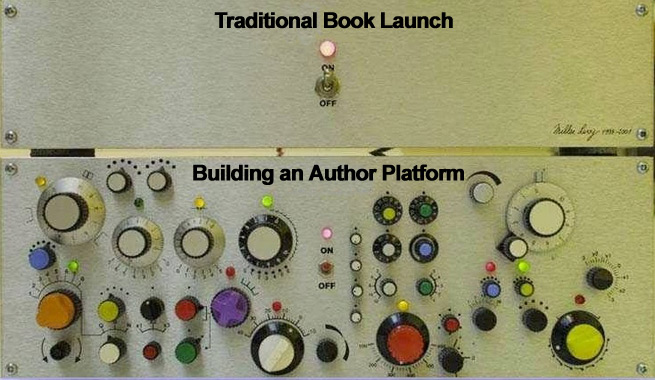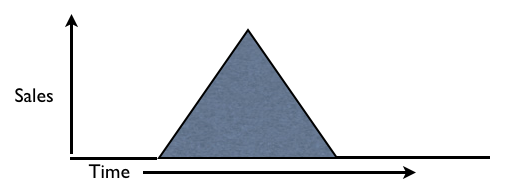
My wife bought a college yearbook from 1927. We were astounded by it’s craftsmanship – it’s weight, depth, and overall quality.
It had me considering the difference between this book and Facebook.
The difference between eBooks and traditional books.
Between art and commerce.
Between experience and documentation.
I work with writers to help them connect with those in their community, with readers, with like-minded individuals. And there has been a lot said about the expectations upon authors – about whether they must now be marketers, constantly promoting – or if they should focus solely on writing.
But I think there is a distinction.
That our creative work need not be shared.
That our creative work need not earn a profit.
That our creative work can be a slow and personal process, and it’s effect internal, not external.
And that this is a choice. A writer does not need to share their creation. They can write it in perfect solitude, and never spend a moment on marketing. And that is absolutely fine.
But what if the goals of the writer or creator is that they DO want their work shared? That they want to do everything possible to connect to others through their work. How do they find the time to do both – to create, and to connect?
In the 1990’s, I spent three years creating a series of pop up books. These were born in the midnight hours as I worked three jobs to pay the rent. I went through revision after revision, exploring the story, the words, the illustration, and how they related to the paper engineering of the book.
I spend months experimenting with materials and styles.
I went through x-acto blades by the dozen.
I would wander around New York City taking photos of everyone and everything that inspired me, infusing them into the work I was creating.
These books represented an entire world to me. They pushed me further and further, trying to become what they knew they needed to be.
After three years of work, my time with that story was done. In the end, there were three books, and a story that pushed my vision further than I thought possible.
And then, at the culmination of the creative process, I carefully packed them away in boxes, and that is where they have been ever since. And that is where they will remain.
Those stories did not need to be shared in order for me to fulfill my vision for them. They didn’t need an agent, a publisher, a Twitter feed, a book tour, a line of related merchandising products, or a royalty check in the mail. They didn’t need an audience.
Their purpose was served in their creation alone. Not everything needs to be shared.
So if you are a writer, trying to understand the role you play in finding an audience; if you are a creator, summoning a world that never existed before, and putting it on paper: it is your choice.
Your work does not need to be shared.
It does not need to earn revenue.
The process of creation alone is enough.
A world has been created, and an identity has been explored. And that does not need to be validated by attention or praise or money.
But…
If you choose that your work needs to have an effect outside of yourself to be relevant; That it must be read; That your skills must have an audience; That your time must be supported my monetary benefit; That it has an inherent value, and an industry such as the publishing industry can assist you in exchanging it for its approximate financial value.
If any of these things are true for you, then we must move beyond the romantic vision of publishing. That the world will magically find your work. That an industry will expend its precious resources to share it, to promote it, to give it a chance to grow. That this happens naturally, easily, and within a reasonable timeframe.
Publishing is hard work. And that hard work does not guarantee you an audience, validation or financial gain. It is no one’s RIGHT to have those things, it is something that is earned.
That is why I work with writers to help them connect with others. Because it’s not easy. Because it’s hard to do it alone. Because it can be an inherent part of realizing the vision of the creative process.
These writers have goals, and that includes extending the value of the work beyond themselves. And they are willing to invest in the vision. They are willing to work for it.
You don’t have to do that. Every song does not need to be published by a music label and played on the radio. For some songs, it is enough for the singer to sing it alone in a cabin in the woods, never shared. It is enough for a song to be written and sung from one person to another, never resonating in the eardrums of another person.
But for those songs that need to spread – that is a choice. It is a choice to share – to work hard to do so – to give it wings beyond the creator.
Should Bob Dylan focus his musical genius by only sitting home and writing songs, exploring his craft? Regardless of what you or I think, he spent most of his career touring hundreds of days each year.
Should U2 have never released and promoted their material under a tight deadline, even though some band members felt it wasn’t ready? Regardless of what you or I think, they did, and found success doing so.
In fact, I think that the promotion of a work can be integral in developing it. That you learn to explore it from outside of yourself. You learn what it does or doesn’t mean to others. You see it in a new light, outside of the confines of your head. You give it a chance to breathe, to grow on it’s own. This is why bands tour. This is why Jack White will spend a day recording an album, and a year touring it.
It’s not always ideal. Many popular bands are sick and tired of playing their hits – they have done so hundreds of times already. They watch crowds rush to the bathroom when they play their newest material – the material that as an artist, they are most proud of personally. And they work to share these songs, to give them meaning and context in people’s lives.
My pop up books sit in the dark corners of a storage space, packed deeply away. That story does not need to be shared, and that is my choice as a writer and artist, as a creator.
And for the work that you create, that choice is your own.
-Dan





